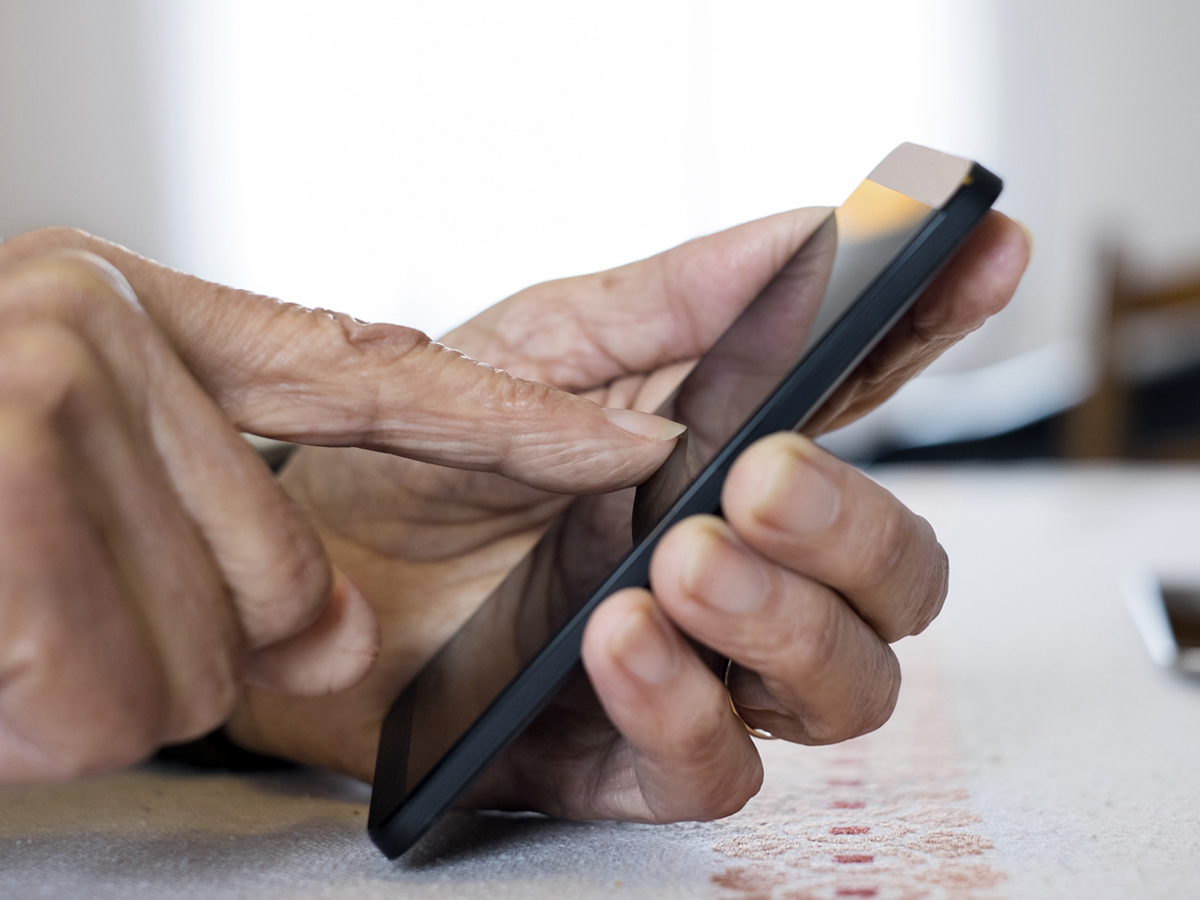Healthier communities: Nurturing physical and mental wellness
Innovation Issue 39: Spring 2024
A familiar voice: Developing an app with seniors to improve at-home care
Student Feature
A familiar voice: Developing an app with seniors to improve at-home care
A voice reminder app that uses familiar voices shows great potential as a practical, easy-to-use tool for seniors who require care and their family caregivers. Developed in collaboration with seniors and care providers, the app allows caregivers to record a variety of voice memos, including personalized reminders to eat and important medical information.
Mechanical and industrial engineering graduate student Karen Natalie Penaranda Valdivia developed a prototype of the app for her master’s research at Toronto Metropolitan University (TMU). She wanted to discover if seniors would be more receptive to voice reminders using familiar voices than to the synthetic voices used on smartphones and smart speakers. Penaranda Valdivia also investigated how the simple tool could assist family caregivers, who often need to step in when seniors are unable to receive adequate support through outside care. Under the guidance of her supervisor, mechanical, industrial and mechatronics professor Jamy Li, and in collaboration with the Toronto Neighbourhood Organization, Penaranda Valdivia worked to co-design, test and refine the app with seniors.
“Oftentimes, technology is designed in a very ageist way,” she said. “We think that seniors are unable to use technology, and we simplify it. We don't ask seniors for ways to make technology more accessible for them.”
Interviews with 17 seniors and 16 caregivers allowed her to gather feedback on the app’s functions and user interfaces, such as screen brightness and ergonomics. Penaranda Valdivia also consulted 15 community medical providers, including support workers, social workers and nurse practitioners, to gain feedback on the app’s functions, address privacy concerns and learn how to ensure seniors would adopt the technology. Her research indicated that seniors were already adopting technology to assist with tasks, most seniors preferred hearing familiar voices over synthetic ones, and seniors at all income levels had access to cell phones.
After refining the design, family caregivers tested the app, and seniors were given another opportunity to provide feedback. Reminders to eat a meal helped the 50 per cent of participants who said “they forgot to eat” remember to do so while also making them feel cared for. Voice reminders about support workers coming to the house helped ease some of the seniors’ anxiety, reducing how often they needed to contact their family caregivers during the workday. Participants also found voice reminders particularly important for administering medication, as 30 per cent of family caregivers experienced forgetting the proper dose.
“In the interviews, I found the risk of giving the wrong dose of medication is very high,” said Penaranda Valdivia, who explained that the app could also be used to help caregivers remember dosage information. “A verbal reminder can potentially reduce the negative outcome of giving an incorrect dose.”
Penaranda Valdivia, who is pursuing her PhD at TMU, would like to continue working on the app in the future. Additional research could include gaining input from geriatric psychiatrists and physicians and adding functionality for more direct communication between seniors and primary care providers.
Oftentimes, technology is designed in a very ageist way...We don't ask seniors for ways to make technology more accessible for them.

This research was supported by funding from the Natural Sciences and Engineering Research Council of Canada.
